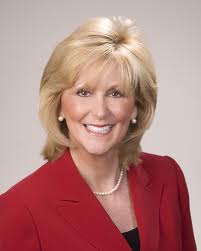Please note that this post contains affiliate links and any sales made through such links will reward MageeNews.com a small commission – at no extra cost to you.
Jackson, MS. – A bipartisan group of Mississippi lawmakers as well as State Treasurer Lynn Fitch have joined forces to support legislation requiring equal pay for women in the workforce.
Republican State Treasurer Lynn Fitch, along with State Representatives Becky Currie (R-Brookhaven), Sonya Williams-Barnes (D-Gulfport), Carolyn Crawford (R-Pass Christian), David Baria (D-Bay St. Louis), Orlando Paden (D-Clarksdale) have joined with Senators Sally Doty (R-Brookhaven) and Tammy Witherspoon (D-McComb) in supporting the Equal Pay for Equal Work bill in both the House and Senate. Doty filed Senate Bill 2697, which mirrors House Bill 818, filed by Currie.
Treasurer Lynn Fitch: “Closing the pay gap is good for Mississippi on so many levels,” Fitch said. “For the 78,000 households in poverty headed by single moms, it gives them a fair chance to break the cycle of poverty. For the 60% of Mississippi university degrees earned by women, it gives them a reason to take jobs in states that protect equal pay for equal work. And, for all Mississippi taxpayers and consumers, it puts another $4 billion back into the economy each year.”
Rep. Becky Currie: “It is not enough to acknowledge that there is a problem,” Currie said. “We also have to take the needed measures to correct it as well. The women of our state – our mothers, daughters and other loved ones – need us to stand up for them right this wrong.”
Rep. Sonya Williams-Barnes: “There are an overwhelming number of working mothers who are carrying the financial burden for their entire families as single parents,” Williams-Barnes said. “They deserve fair treatment in their wages. They deserve strong support so they can put food on the table and keep the lights on every day.”
Rep. Carolyn Crawford: “It is inexcusable in this day and time to be paying women less money for doing the same job as men,” Crawford said. “We can and we will do better in our state. We can and we will fix this.”
Rep. David Baria: “Wage inequality not only affects Mississippi’s women, it also has a negative impact on our state’s economy as a whole along with entire families,” Baria said. “We owe it to all Mississippians to get this done right.”
Rep. Orlando Paden: “Our women, our children and our grandchildren need us to improve the laws involving pay equity,” Paden said.
Sen. Tammy Witherspoon: “Mississippi has a chance to be one of the nation’s leaders in something vital for the economic stability of the state and the nation,” Witherspoon said. “This far exceeds politics or political parties. This is working for what is best for our Mississippi.”
Both the House and Senate bills seek to prohibit wage discrimination on the basis of gender:
· Giving employees an actionable right in Mississippi to challenge discriminatory wages, and
· Ensuring women performing comparable job duties will be compensated at a rate equal to that of a man performing the same duties who has similar qualifications.
Both bills, as well as other pay equity bills, have been referred to legislative committees. Without committee action by a legislative deadline tomorrow, they will not advance to consideration by either chamber of the Legislature.
Earlier this month, Mississippi Gov. Phil Bryant shared his support, as well, saying he welcomed a serious conversation about closing the pay gap. “I unequivocally support women receiving equal pay for equal work,” Bryant said.
Equal Pay Facts:
· In Mississippi, women overall earn on average $0.75 for every $1 men earn.
· A mom who works full-time, year-round in Mississippi earns just $0.67 for every $1 earned by a dad working full-time.
· Over a 40-year career, the average woman in Mississippi will lose $375,000 because the state lacks basic protections ensuring equal pay for equal work.
· In 2015, women with a high school diploma and no college earned on average $20,436 compared to men with the same level education who earned on average $31,921.
· Women with a bachelor’s degree working full-time, year-round earned on average $35,298 in 2015, compared to men with the same level of education that earned on average $50,472 (2015 American Community Survey, 1-year).









